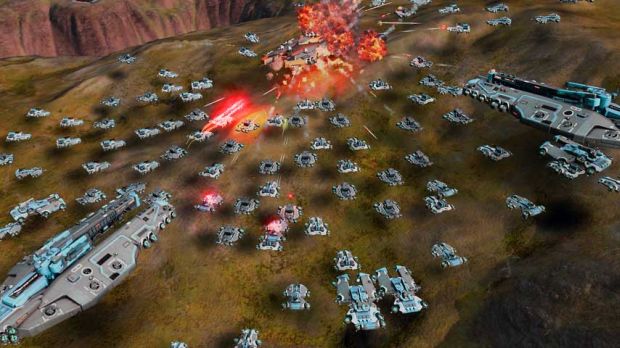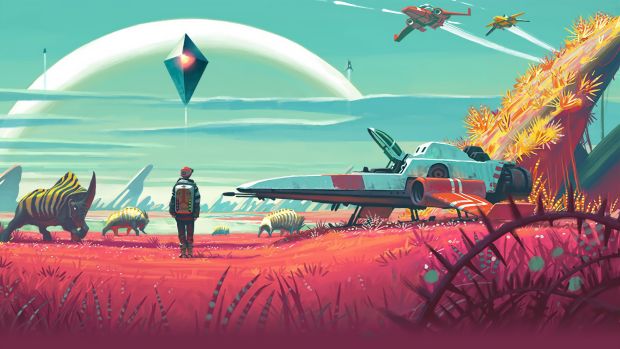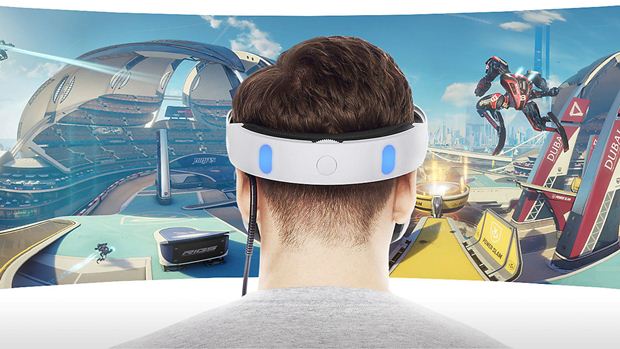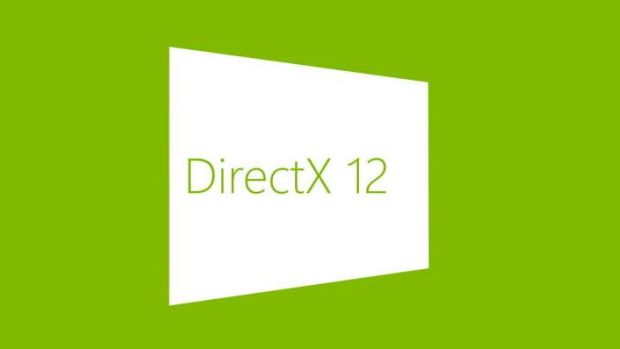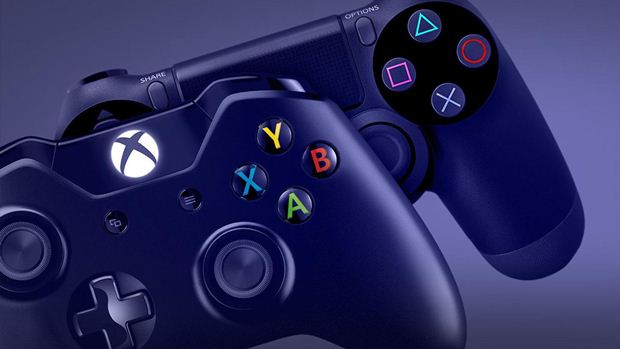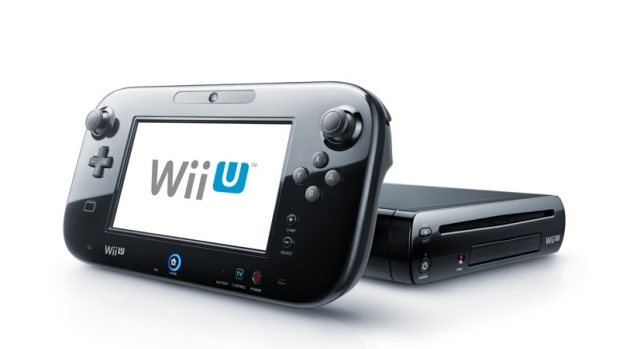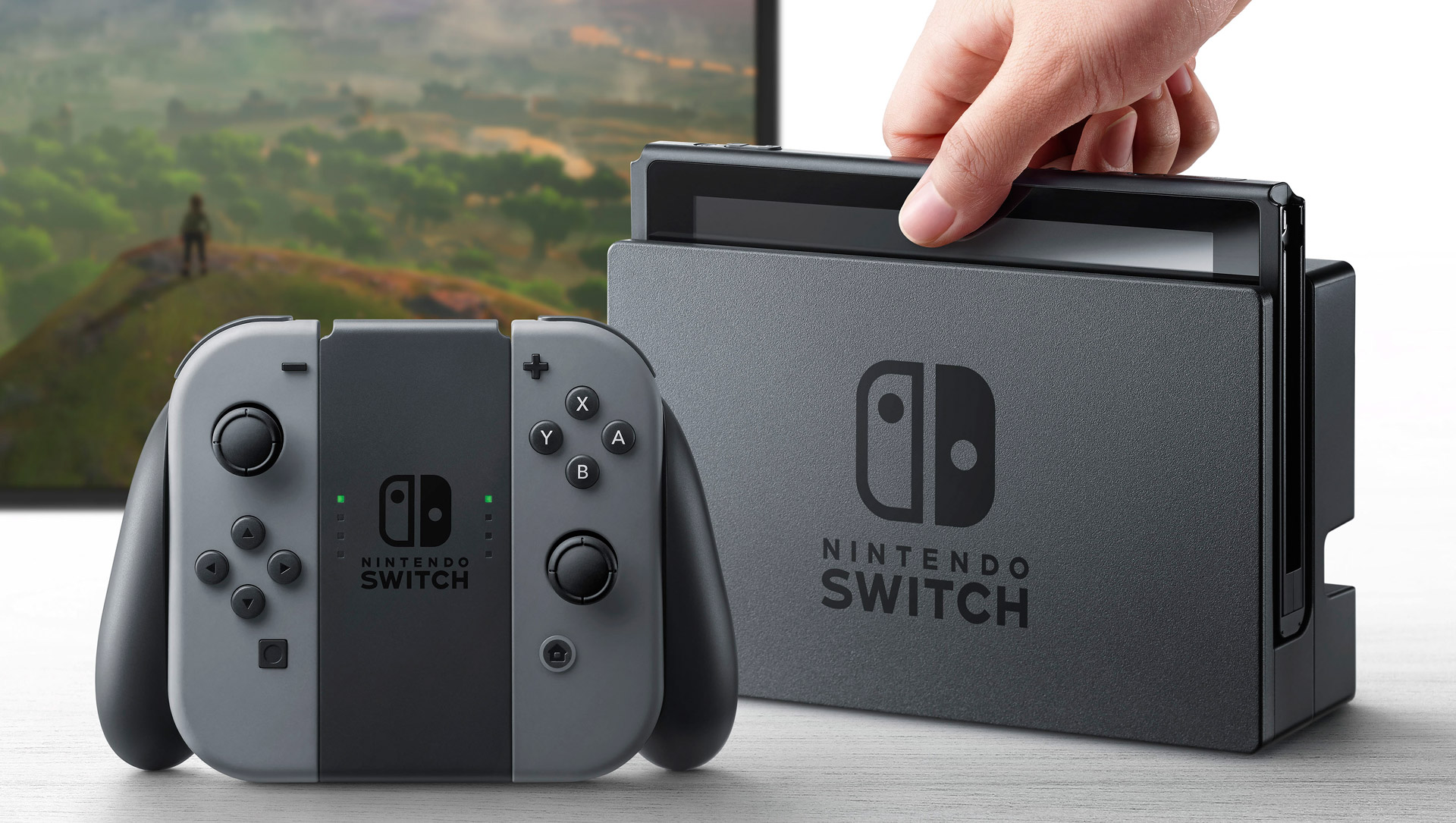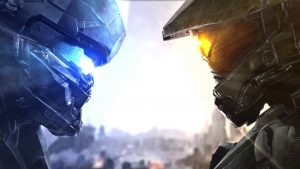
Stardock is a company that pushes boundaries of technology in video games. The company, known for its compelling and highly addictive PC science fiction games, has pushed the benchmarks of graphical technologies before numerous times, and is looking to do so again going forward. This is the rare company, in other words, that can deliver on style and substance, both.
So naturally, when you get the chance to talk tok someone from a company like that, you want to ask them everything that you can. And that’s what we did, when we got the chance to engage Brad Wardell of Stardock in an exclusive interview some time ago.
Okay, so to begin with, would you like to introduce yourself for our readers?
Sure, I’m Brad Wardell, I’m the President and CEO of Stardock, we’re located out here in Michigan. And we’ve been in business since the early 1990s,we’re one of the early game development studios still around. We’ve made Galactic Civilizations, Sins of a Solar Empire, Ashes of the Singularity, Offroad Trading Company, and lots of other great stuff.
Well, I just want you to know that Sins of a Solar Empire is a personal favorite game of mine- and I really am hoping for a follow up to that, actually!
Yup, we are too! (laughs)
Ashes of the Singularity has been a massive success for you- what is the future road map looking like for the game?
In 2017, we’re trying to add a lot of stuff, I would say features that many RTS players would expect in the genre, but features that were pretty hard at first because of the nature of our engine- such as replays, better modding support, new types of units, that kind of stuff. And we’re starting to try to create other kinds of environments like oceans, so we can eventually have ships and other races, and that kind of thing
So, I know that strategy games are hard to put on systems other than PC- I think Halo Wars is one of the few notable examples of the genre having made the jump successfully. And your games are even more nuanced than the average RTS, they borrow liberally from 4X games. So I guess my question is, are there any odds of Ashes of the Singularitymaking the jump over to consoles? How about the Nitrous Engine [that Stardock has developed, and that Ashes runs on]?
Nitrous will run on consoles, we plan on bringing it over to consoles. Ashes of the Singularity, that would be tough. I remember- you remember when they tried to do Supreme Commander 2 on a console, and the sacrifices they had to make to try to get that to work were pretty tough. But I won’t say never- I just think it depends on how consoles evolve.
"We’re trying to add [to Ashes of the Singularity] a lot of stuff, I would say features that many RTS players would expect in the genre, but features that were pretty hard at first because of the nature of our engine- such as replays, better modding support, new types of units, that kind of stuff."
Okay, so Star Control: Origins- now this one I actually don’t know much about, I know that you’ve announced it for PC and consoles, but we haven’t heard much more about the game. What can you tell us about it, and when can we expect to start hearing more about it?
Sure, so Star Control was a really popular series back in the early 1990s. And it was one of the few action adventure games- some describe Mass Effect as a remake of Star Control, so to say, where they try to blend RPG and adventure and action all together in a single game. Some years ago, when Atari filed for bankruptcy, we were able to pick up the rights to the Star Controlfranchise, and we decided to make a new one. So a lot of the time since has been spent building up our studio in Maryland, hiring up people who can do right by this reboot. In terms of when people will start hearing more about this? I’d say probably Summer or Early Fall is when we’ll start ramping up. What we don’t want to do is show too much and then people are disappointed- so we want to see we show it in a state so people can really see where we are going.
Yeah, I think there has been an issue with hype cycles of late- I think last year No Man’s Sky was an example of that, where they showed too much too early and ended up overpromising, and people were expecting too much going in.
Well, that’s really on the developer, right? The developer can control the messaging, what they go and promise. In some ways, Star Control is like a No Man’s Sky kind of game in that you are going out and exploring. So we have to be doubly careful now to make the distinction of, how will Star Control not be like No Man’s Sky? Since you have a ship, you’re going out and meeting aliens, landing on planets, collecting things- and how is that different than No Man’s Sky, and how are we going to avoid the criticisms that game had?
Yeah, that makes sense- and it comes back to you saying you want to show the game when you won’t overpromise.
So is it fair to say you have used Mass Effect as a point of analogy for Star Control? Is this going to be along those lines, or are you looking at it being more like No Man’s Sky, or is this a hybrid?
Well, it’s more along the lines of Star Control itself, the classic games- which means you’re flying a ship and you see it from top down- so it’s not first person. And when you get in the combat, it’s more of an arcade experience of you versus the other ship, which you see from overhead. You can control your ship with special powers, with the gamepad or the keyboard if you’re really old school. Even the map exploration where you land on planets and that sort of thing is designed to feel more like- I’m trying to think of a way to describe this. You’re landing on spherical planets. So the planets are ‘small’. And they are not to scale. So you’re not going to get lost on the planet, but you can explore its entire surface relatively quickly.
So it’s like a modern realization of the overworld abstraction.
Yeah, exactly. The Star Control gameplay is what people loved about the original series along with the amazing writing and the sense of adventure, and also the sense that this was a galaxy or a universe that felt pretty open. It was definitely a good balance between having a direction of what you should be doing but at the same time not putting you on rails.
Right, and we are seeing these days that games that give players agency and the freedom to engage in emergent situations are the ones that end up doing better than ones that insist on railroading players.
I totally agree.
Well, I wanted to talk about another one of your games- Galactic Civilizations 3 is still receiving updates, your support for the game has been exemplary, I think there was an update last month? And I wanted you to talk about your plans for any further updates for the game.
Well, yeah, we’re actually working on the biggest expansion we have ever made for any game ever as a company, it’s called Galactic Civilizations 3: Crusade. And it’s actually due out early this Spring, we’re getting pretty close to it being done. And in the old days, before digital distribution, this would have been a full fledged sequel, but now thanks to digital distribution we can release it as an expansion instead- but it’s a top to down revisit of the entire game, from diplomacy to how economics work, and how combat is handled, everything. It’s a full blown major change to how the game plays.
"We have to be doubly careful now to make the distinction of, how will Star Control not be like No Man’s Sky? Since you have a ship, you’re going out and meeting aliens, landing on planets, collecting things- and how is that different than No Man’s Sky, and how are we going to avoid the criticisms that game had?"
I suppose this is one of the reasons you have such a vibrant and engaged community, because of your persistent support for your games.
Oh, thanks! Well, a lot of it is just listening to what the players want, and chew on it for a little bit, think about what things we can or cannot do, what makes sense within the scope of the game- and then try to come up with something that you enjoy as a developer, and what the customer will enjoy as well.
Well, this is actually touching on a question I had- a lot of the times, players have this litany of requests or demands or complaints for a game, what they want to see, and what they think it should be like. And we’ve often seen this, there are cautionary tales, where what players want is not always what’s best for the game- so how do you balance accounting for player feedback, but also not accounting for it so much that it ruins the cohesion of the vision of the game?
I don’t think there’s any hard and fast rule on how to do that- in my experience, I try to listen to what they are looking for, and one of the first questions I have to ask is- is this player really, do they want this game in the first place? Someone who comes in and wants Galactic Civilizations to be a shooter or an arcade action game – like people saying they want to be able to pilot ships around – well, this may not be the game for you. Whereas someone who says something like, ‘when I trade with aliens, I would like to know why they do or do not like the offer I made.’ Well, that’s something I can do something about.
That makes sense, you want to make sure the requests you do account for are within the purview of what the game is.
Yeah, I mean a lot of times, it’s amazing just- sometimes, someone says, well, when I switch to battle, I want it to switch to a Sins of a Solar Empire mode. And I go, well… you know- maybe that sounds fun, until you realize you have to do like 19 of those a turn.
Yeah, just switch to Sins of a Solar Empire if you want to play Sins of a Solar Empire!
Right- we made a game for that genre.
Yes- and I hope you make another one!
Well hopefully we’ll have some good things to say in the future!
I wanted to talk to you about virtual reality. I mean, it’s new, I think last year was the first year when we had the three mainstream VR headsets launch- Vive, Rift, PSVR. So far I want to say the uptake on them has been sort of slow, but it’s early days. So I want to know, what do you think about the spread of VR? Will it catch on? What do you think of the tech?
Well there’s a certain- I think that certain things are missing from the hardware that would make it more compelling. Like hand tracking and gesture tracking- I don’t think hand tracking on its own is sufficient to give me a fundamentally different experience. So I’d expect to be able to use my hand at the very least to interact with the world, and I don’t mean using a special controller, I mean track my hands- even if you do want me to wear, I don’t know, gloves. But I don’t even want to wear those, so just hand tracking. So, I’m wearing a headset and then I have to use an Xbox controller, and that does seem to take away from it a bit- because at that point it’s just a really fancy display. So I do think that AR, VR, and even mixed reality are- they’re some day going to become major things in the future. I think we are still at the beginning of that market, though.
"I do think that AR, VR, and even mixed reality are- they’re some day going to become major things in the future. I think we are still at the beginning of that market, though."
So, how far are we from full immersion, like you said. Tracking your body position, so you don’t have to interact with the game using a physical controller, as one example?
That’s- really, there’s two questions there. One is, when will we have the tech- actually, three questions. When will we have the tech to do it, when will we have someone actually do it, and when will we have the software that can deliver that tech? That’s a lot of variables. I would say we could do the tech now if someone designed something like it. The fact that we have something like the Kinect today- the issue is cost. No one wants to spent $3000 on one of these things. It’ll have to wait till tech gets a little bit less expensive, basically.
Software wise, you have Nitrous, which is what powers Ashes of the Singularity and Star Control, and it can do it. it could deliver that experience today. I think it will be some time before Unity or Unreal can do that. Which is another challenge, because in order to make use of this tech you need to have engines that are core neutral. As it stands today, Nitrous is the only core neutral on the market. So it’s a matter of when other engines start releasing core neutral versions on the market, or if there is more adoption of Nitrous.
I did want to ask you about the Nitrous Engine, too- would you say VR has influenced how it has evolved at all? How would you characterize its evolution in the last year or so?
Well, a lot of our focus on Nitrous has been on making the tasks become smaller and smaller. The first thing to understand is what core neutral is- in a typical game, if it’s a modern game – if it’s an old game, it’s only a single thread, and that’s a whole other issue – if it’s a modern game, you’ll have four threads: graphics, gameplay, particles, and the main thread. And something that is build on Nitrous, there is no dedicated thread, and rather it is all tasks. So it doesn’t differentiate between a graphics or AI task. They are all tasks that get sent off to your CPU cores as soon as they come in, and then they can all talk to your graphics adaptor at the same time without any care about what the task is. So a lot of our effort with regards to VR is making those tasks smaller and smaller so that in the future, we can potentially send off those tasks to non connected hardware. So imagine some processing is being done on PC, some on your cellphone, and some on another piece of hardware entirely- and the only way something like that can ever happen is if the tasks get really tiny.
So, you’re trying to basically make individual tasks smaller so they’re easier to handle?
Exactly.
I mean one example of a very badly designed task would be, Task: Render Entire Scene. Right, that’s one task, a giant task, but a task. What you’d want would be something much simpler, like Star Shading Particle, or begin geometry.
So the idea is to have small tasks that are easier to manage as opposed to something that can overwhelm your system.
Exactly.
So I want to tap about Nitrous 2. What are the kinds of improvements it will feature over the original, especially given that you will continue to work on the current Nitrous Engine?
Sure. Nitrous Engine 1 was predicated on your game or application happening on a single machine,, whatever that machine is. Version 2 doesn’t make that assumption. It says now that task can be sent anywhere- to your local CPU core, but one of these tasks could be assigned to a VR set, or some other external piece, where the engine will take the hardware configuration of the other computer, the other core, into account.
So it’s sort of Internet of Things ready?
Uh… I don’t know if I’d use that analogy. It’s more like, the idea is that in the future the tasks that need to be done, you shouldn’t assume will all be done on a single computer. Some day, we’re going to look back on these pictures of us looking at these screens and laugh that we used to talk to dedicated screens. We’ll look at it the same way we look at CRTs today. That’s because in the future, the thing that is doing the computing won’t even be connected to the thing that is doing the computing- they don’t have to be physically connected, as they are today. And the way you get around that is by breaking up your job, whatever it is- even if it’s displaying Skype, you can break it down into tiny tasks that are super lightweight, and have it be done in your glasses, or on some LCD. There’s no brains to it at all. But the way to do that is to break every task into tiny tiny micro tasks that are sent out to a lot of pieces of hardware, and are then put together.
That actually sounds really interesting. It’s a lot like the cloud computing concept, but being done in your vicinity rather than online.
Well, cloud is still kind of monolithic- when people say they are doing something in the cloud, what they’re really saying is that they’re sending data out to a server farm somewhere, in one place, right? But it’s still one place. But that’s why we can’t use the term distributed computing to describe what we are doing, right? We need better terminology. It’s more like discrete- not even that. There would have to be a new term invented for it. But the idea is that what I am doing, part will be done by my mobile, part by my screen, part somewhere else. It’s just- that’s true cloud computing in a sense.
I’d call it piecemeal computing.
Yeah. Unfortunately, cloud computing as a term actually works out well for this, but when we think of the cloud, today, it’s not really a cloud, it’s just remote. My Cloud Drive is not being stored all over the place, it’s being stored in one place, but just being accessed by m remotely.
That makes sense. So do you think there are any applications for this beyond just gaming?
Oh, I think the applications will be primarily non gaming. Think about Skype on a laptop. But imagine five years from now we all have our augmented glasses, and they weigh or look no different than regular glasses, except there’s a tiny, tiny processor on there that’s doing the last step of rendering to display images on your lenses. And it can track your hand so you can manipulate the screen. But the rest of the processing is being done partly on your smartphone, partly on your PC.
So how do you account for latency? Obviously things will have to be wireless-
Well, there’s no latency because your glasses are actually doing the compositing on the fly. It’s not streaming. It’s the computing happening at different rates. Think of it this way, in general computing, only a little bit is actually changing on your screen per frame- and you can do that locally on your glasses, and the bulk of the work can be done wherever else, and then be sent to your glasses.
That’s why I’ve never been big on these streaming technologies- because latency kills it, you have to do the final rendering locally.
Yeah, that’s what I was wondering, it sounds like you have a rather elegant solution around it.
Yeah, I mean, someone is going to do it, our goal is that it will be us. But, it’s how you solve the problem of latency is that you have the last step being rendered locally. That way you skip the latency part. So a video game- most of the rendering job such as models can be done wherever. It’s really the last step on your headset so to speak that needs to be done in real time so you don’t get any latency.
"DirectX 12 and Vulkan are certainly total game changers."
Well, you brought up non gaming applications. Which brings us neatly to my next question. Stardock is releasing software solutions for Windows 10. And there’s this general doom and gloom around the dedicated gaming market as we know it dying out. So what I want to know is, how would you say does your non gaming business model work compared to the gaming business model? Do you think it’s a good complement, or a full on replacement?
I mean, we’ve always made software and games. And I’ve been hearing that dedicated gaming will die since forever. And that’s not going to happen, I don’t even know why people say that. I think we’re moe likely to see the software market die than the gaming market. Because people want to use their devices for entertainment, whether it’s a PC or a Mac or a console. Look at how popular the Nintendo Switch is- there’s a huge market for that. The hard part is making your games be accessible and discoverable by others. Because there are a million games made, how do you stand out?
Okay, so moving back to games- we discussed VR multiple times, and I think Nitrous Engine 2 supports VR, and you have hypothetically discussed how you would tackle VR. Does this mean there are VR games in development right now at your studio?
Yeah, in our case- what we’re doing with Star Control for example is, we’re not gonna go and- I look at VR as, hey, here’s this additional mode, until there is more of a market. We’re not going to dedicate investment on VR only games. But I am happy to support VR since it’s already in our engine. Like, ‘hey, if you have VR, here’s an interesting thing you can do.’ Star Control’s got modding- we want people to be able to create their own universes that they can share online. So one of the things that we have to be able to do, because we are supporting VR anyway, and modding anyway- why not let players be able to do star cartography like they do in Star Trek, where you can just walk around and move start around?
That sounds pretty futuristic too!
Yeah! Plus it might make modding easier for those people because they can kind of walk around their galaxy and get an actual feel for how it’s laid out. Cause that’s one of the problem with making a true 3D galaxy, which the original Star Control actually had- it’s really hard to deal with because you’re on a 2D screen. But in a VR world, that becomes easy to deal with and very interesting.
I wanted to talk about DirectX 12- I think before it launched, there was a lot of hype and talk about it. It was coming after a long time, for a while people had thought that Microsoft had lost interest in developing the DirectX API any further. But it’s launched, and two years later, what are your thoughts on how it has turned out and how it has come along? When do you think will we see more support for it?- right now it’s not doing all that great on that front.
Yeah, that’s a lot of questions. DirectX 12 and Vulkan are certainly total game changers because they allow multiple threads to be talking to GPUs simultaneously. It’s as simple as that. DirectX 11, no matter how fancy your engine was, only one of your threads could talk to the graphics engine at a time. And that was better than DX9, where only one fixed thread could talk to an engine at a time.
But DirectX 12, if I have 8 or 16 cores, and all of them can talk to the engine at once- then that’s a hell of a performance boost. That was actually the reason I got a lot of scepticism about the benchmarks for Ashes of the Singularity, because we came out and said we are seeing a 400% boost in performance on an eight core machine. And when we shipped it, it ended up being even bigger than that. People thought the numbers were crazy, but think about it, they’re not. If in DirectX 11, only one core can talk to the GPU at once, and in DX12, we have eight- your theoretical limit would be eight times a boost. We don’t really get that, but a four times boost is not that crazy then.
So why has support for DX12 and Vulkan been so limited, given how game changing they are?
The biggest reason is documentation. With DX11, there’s lots and lots of books out there for it. DX12 needs a lot more documentation before people will pick it up. The other thing is, people are now using off the shelf parts. And so, that can be tricky because if you have multiple threads talking to the graphics adaptor once, you have to be careful how those threads work, you can’t just- if you have two threads talking at once, your apps will crash. It’s actually quite tricky to do it right. And so because of that, it’s just slow going. I can say that Microsoft is doing some pretty exciting stuff on that end- but whether, in the long term, it’s all going to be DX12 and Vulkan, because you can’t just walk away from something like this. Wait until 16 core CPUs are the norm, if you’re using DX11 at that time still, you might be at 1/10th the speed of a DX12 game. That’s impossible to ignore.
So it will happen eventually, it’s just a matter of time now.
Yeah. And it is difficult, developers will have to get a lot more careful until engines have improved a lot more and Microsoft has documented DX12 more, and there are more books on it… or any books.
Maybe this is my ignorance on the matter, but this reminds me a lot of the issues Sega had with the Saturn with the parallel processing. Theoretically the Saturn was supposed to be more powerful than the PS1, but the idea of having to synch up multiple cores at once, which was something new, was so hard, that most people didn’t even bother and couldn’t get it to work.
It is a little bit similar. The difference is that here, more CPU cores are inevitable. It’s not like there will be a time in the future after which my knowhow is irrelevant, right? Because even if I had become an expert on the Saturn, my knowledge was good only for the Saturn, it would be irrelevant in a few years when its successor came out. So that makes it really hard to invest in learning the idiosyncrasies of that platform. Whereas in the future, if you look at AMD’s Ryzen, they are eight cores. Then one day we will have 16, 24 cores, and it will be some insane number of cores, and we will laugh at being impressed by eight cores like we do at old 10 MHz machines. So this knowhow is always going to be relevant.
You once said that DX12 and Vulkan would be able to render scenes closely resembling ones from movies like Lord of the Rings. I think we’re sort of there, I’m pretty sure we’ll get there eventually-
No, we can totally do it, I’m telling you right now. With our budget, I could totally redo, on a modern PC, I can render the Battle of Helm’s Deep in real time.
So do you think consoles, like PS4 and Xbox One, they have a wider audience- do you think they are holding PC games back?
No, I mean, there are certain limitations you have to work under. There’s what you can do and what is marketable. Ashes the Singularity has sold a lot better than we ever thought it would. But we shouldn’t kid ourselves, it won’t be a top 10 seller any time soon overall, because for it to shine, you need 2GB of VRAm and 8GB of RAM and four CPU cores. And while hardcore gamers have that, it’s still not that common. And in order to do Lord of the Rings in real time, I would need a 16 core machine, 8GB of VRAM, and, say, 16GB of RAM, with either an AMD Vega or GeForce 1080.
"I think, all the guys will end up releasing just a early or bi-yearly upgrades to these things, like the iPhone, and they’ll all going to end up following the iPhone model, where you must have at least this model for it to work."
And that’s a minuscule fraction of the market.
Exactly. So I could do it, there will be no one to sell it to.
So I guess it’s the idea of a larger audience, not just on consoles, but even within the context of the PC gaming market.
Yeah, and right now, even as is, with Ashes we had to do things that in the short term cost us some things with the presentation. There are things we didn’t want to have to do but had to to hit hardware requirements that would make the game viable. But in the long term, having giant armies of animated creatures for example is inevitable.
I wanted to go back to something you said earlier about fixed hardware for consoles made relevant by their successors. It’s especially interesting, because with the PS4 Pro and the Xbox One Scorpio, it seems like we are now moving to a model where we have rolling updates and continuous hardware platforms instead of discrete generations. Do you think thesis how it will play off from now on, or is this just a one off experiment?
I don’t know, I think it’s- a lot will depend on how savvy the market is. For example, the Xbox One out of the box, the memory speed is not super fast, it doesn’t have any serious dedicated graphics memory. I think it has 32MB of eSRAM in there. The PS4 has 8GB of GDDR5 in there. And so that makes it really hard for the Xbox One to have the same kind of graphics fidelity that the PS4 does right out of the box. Now Scorpio addresses much of that, but the question is, if I have to make my game run on the basic Xbox One, well that’s- how far can the difference in capability be before it’s actually kind of a problem?
That’s actually one of the things I wanted to ask you. I’m sure Microsoft is counting on the scalability of modern game engines and development pipelines, as well as their UWP framework. Now the Xbox One Scorpio is a massive theoretical improvement over the Xbox One- the question is, if Microsoft has mandated that all of their games also need to run on the standard Xbox One, how much difference will we really see in those games running on Scorpio?
That I couldn’t answer, I could only speculate. I think it depends heavily on the game. Certainly, it’s- well, like I said, we come back to graphics memory, in every other way, the Xbox One is so excellent. And then it has that memory speed bottleneck. I don’t know, I think it depends on the game.
I also wanted to ask you about the PS4 Pro, which is a far more moderate upgrade over the PS4 compared to the Scorpio relative to the Xbox One. I think Sony resorts to techniques like Checkerboard rendering to hit 4K- do you think they should have waited a year to release a full fledged 4K machine, instead of the half step we got with the Pro?
I don’t know. I think 4K is becoming pretty common now, but I think when they were starting out, I don’t think any of us expected it to take off quite as much as it did,” he said. “On the other hand, there’s still quite a lot of exciting things waiting- HDR is going to be a big deal. So that’s another thing these guys will all want to support via upgrades in their hardware (and by the way, Nitrous Engine supports HDR, I think we’re the only ones who do). And that’s- it creates a pretty tremendous visual difference. I don’t think that many people have HDR yet, though. So give it another year or two… I think, all the guys will end up releasing just a early or bi-yearly upgrades to these things, like the iPhone, and they’ll all going to end up following the iPhone model, where you must have at least this model for it to work.
So a rolling generation instead of a discrete one.
Right.
For pushing game development further, for achieving parity with the kinds of advances that we see in the PC market, do you think this moderate rolling model that Sony has with the PS4 Pro better, or are the gigantic leaps, such as the one we see with Scorpio, better?
I think that in the case of- I think both retrying to aim for different things, trying to solve different problems. With Scorpio, Microsoft is trying to, I think they are making a lotto good moves trying to address a lot of the weaknesses of the original Xbox One hardware. The PlayStation 4, it has a little bit different issues traditionally, I find their software environment a little stranger as a PC guy. But their hardware was already in pretty good shape off the bat. They don’t have any- they bit the bullet and put in 8GB of super expensive GDDR5 memory in from the start.
Speaking of those weaknesses, one of the weaknesses of the Xbox One hardware that we have discussed already is the eSRAM. The Scorpio is apparently doing away with this according to recent leaks. If they do do away with that, what kinds of benefits do you think we will get from this?
Well, that’s what I’m talking about. It’s that memory speed issue… on the one hand, it’s a great thing they’re doing it, on the other, it’s that backwards compatibility thing. One has eSRAM, the other does not- then, if I’m a developer, I’m hoping that the OS takes care of that, instead of me having to work separately for each.
I wanted to ask you about- let’s forget the mid generation upgrades. Eventually there will be a full fledged PS5 and Xbox One successor-
You think so?
I hope so! Or will we just be getting rolling upgrades from here on out?
"All the way back to the Gamecube, through to the Wii U, they all iterated on the same hardware under the hood. You can argue that if they do make a Playstation 5, it will be a marketing thing instead of a discrete break in hardware. It’ll still have new hardware, but under the covers it will just be the latest of whatever the hardware it is using now is, instead of entirely new chips."
Well, that seems to be the way everything else is going- the iPhone, iPad, all mobile devices. In a way, that’s what Nintendo has been doing, right? All the way back to the Gamecube, through to the Wii U, they all iterated on the same hardware under the hood. You can argue that if they do make a Playstation 5, it will be a marketing thing instead of a discrete break in hardware. It’ll still have new hardware, but under the covers it will just be the latest of whatever the hardware it is using now is, instead of entirely new chips.
Do you think that whenever this ‘shift’ to PS5 happens, do you think we’ll finally achieve photorealism? In the next generation, the next cycle?
Well, I think we can do it with the current cycle, actually. We can go full realism. I mean, can we get past uncanny valley? Probably not. But when I think photo, I think still images. And we can definitely do that! For one frame- it’s usually the animation or how the light interacts with certain materials that makes you go, ‘this isn’t quite right.’ You know, a lot of it comes down to the engines too. The hardware guys probably shake their fists at the software, because everyone is using these engines nowadays, these off the shelf engines that were written back in the early 2000s. And sure, they’ve iterated, but they’re still based on the assumption that one CPU core is talking to one GPU, for example. They’re not doing- for example, their lighting techniques are very much a video game style lighting technique, and not what you would see in a movie or CGI. But they could- the hardware can. It’s just that the software doesn’t allow them to.
So we’re just waiting for our software engines to catch up t where the hardware already is now.
Right.
In our last interview, you spoke about the potential of cloud gaming, and how theoretically the Xbox One, which was pushing itself on that front, could generate amazing physics and procedurally generated terrain, things like that. Now of course, right now you are speaking more about locally distributed rendering, and Microsoft themselves are not pushing the cloud much anymore, except for Crackdown 3. So I guess, where does this leave traditional cloud gaming, with the server farms handling processing? Is there any immediate future for it?
In the immediate future? Well, it’s always the difference between what is marketable and what is possible. I’m actually surprised more people haven’t done it, but on the other hand, the cloud computing assets available to use tend to be a lot more expensive than what I would have expected. Know that we do some cloud computing with our games, and it’s proven- the services, I won’t go into them, but they’ve all seen costs way more than we would have expected. So that’s one of the things we didn’t realize- let me walk you through what I mean by that.
Let’s say you buy a game, you buy it on your computer. Playing it on your computer has no ongoing costs to the developer or publisher, right? Let’s say you play the new Zelda game, it doesn’t cost Nintendo any money when you play that, right? But in the cloud computing world, if you’re playing that Zelda game, and they create this really sophisticated virtual world full of stuff, and streaming it to you, you playing that game actually costs them money. I still think there’s a market for that, but the costs of doing that need to go way down. I mean, it’s orders of magnitude more than what I would have expected it to be.
So I guess the difference is between having a one time sunk cost, versus having a one time sunk cost AND an additional persistent cost with cloud computing.
Exactly, and I think that’s- I think most of us on the tech side are excited about the cloud computing stuff, but anyone who looks at the costs goes, ‘Oh my god, this is really expensive!’ And that was one of the big shocks to us, it was a sticker shock, of just how much we got charged for doing stuff on the cloud.
I mean, yes, I suppose eventually you will go towards whatever is most cost efficient.
Yup. If I make my mind, I want to be able to sell it, and not have to lose money every time someone plays it, that makes a very perverse incentive. You don’t want to create a game where you say, ‘please buy my game! But don’t play it.’ <laughs>
I wanted to ask you about Vulkan. I know we discussed it earlier when we chatted about DX12. But speaking specifically about Vulkan, how do you think it’s coming along? Can it keep up with the larger brand that is DX12?
Well, Vulkan has a lot of people behind it. It runs on Windows 7- which won’t be an issue in the long term, but in the short term it’s super valuable. But I think the single biggest advantage it has now is that there are a lot of people writing a lot of documentation for it. A lot of- so, in the long run, if you want people to use your platform, whatever it is, there need to be ways for people to do it. And because there are so many people behind Vulkan and so many companies that want it to succeed, they have an incentive to go and make tat documentation happen.
So, I think Cloud Imperium Games announced recently that Star Citizen will be ditching DX12 and focus only on Vulkan. Do you think they are limiting their audience by doing this?
I don’t know, I think it depends on how the- how performance works out for them. It’s gonna be interesting to see, because on one hand, Microsoft has a vested interest to see… if you’re making a PC only game, Vulkan is probably a little more, I don’t see Vulkan picking up support if you want to develop on Xbox One. So if you’re making a game you have on Xbox, then DX12 makes a lot more sense. If you’re making a PC only game, then it’s a lot more even, right? So then it comes down to performance, stability, and that sort of thing. I think in terms of Cloud Imperium, a lot of it might simply come down to what engine they are using under the covers.
We also discussed- this was something we touched upon before, that was AMD and their upcoming line of CPUs and GPUs. Now, Nvidia recently launched the GTX 1080ti. Do you think that can keep up with the AMD Vega line? Or do you think it’s more cost effective, cost efficient? Which one do you prefer more?
Oh that’s a tough call. I use AMD hardware myself on the GPU see for sure. Ryzen is still so new, I don’t even think we have access to it yet. I’m a weirdo in the sense that- I don’t need the very fastest video card with my machine. I’m a little more sensitive to, and this is silly, how easy it is to install, or I like my computers to be portable and carry around. I really like the AMD cards, especially the newer ones. The 460, I know it’s not that sexy, but if you’ve ever seen a picture of it, it’s like, ‘oh my god, this is the greatest thing ever, it’s tiny!’ And there’s something to be said for that- at a certain point, I don’t care for 200fps in Battlefield versus 130fps and being able to carry- there’s a certain point where, once you hit this performance threshold, I care about costs and portability, and weight. Just convenience in general. I don’t think a lot of these guys understand that. I read these benchmarks, and no one understands that these cards have an external water cooler on them, which is a pain in the butt to even install. And there is something to be said for a card that doesn’t require all that.
Now I really like the Nvidia 1080, because it does not have that water cooler. So that’s pretty nice. But then you ave the 460, I’m not even talking about 480, the 460 is this itty bitty card, and I can throw it in there, and get some good performance.
"Nintendo doesn’t arguably need third party. You think about the Mario games, Zelda, I mean, there’s plenty there."
So it comes down to a point of relative diminishing returns at some point.
Exactly.
Now this is again something you’ve brought up quite a bit through our chat, and that is the Nintendo Switch. Now, the Switch is not going after PS4 and Xbox One, and Nintendo has arguably the biggest game of all time with Breath of the Wild– but I mean, you are a studio that pushes technology. You like pushing boundaries with technology. What is your take on the Switch hardware? Is that something you can ever feasibly support?
No, probably not. It’s too different than any of the others, and there isn’t a lot of- I haven’t seen a lot of third party success stories on the more recent Nintendo hardware. Nintendo, is a great market for Nintendo, but I haven’t seen a lot of huge hits made by non Nintendo studios.
So do you think that in an era where third party games and support are so integral to success, do you think the Switch has a future in the market?
Oh, I do. Yeah, I mean- Nintendo doesn’t arguably need third party. You think about the Mario games, Zelda, I mean, there’s plenty there. I mean, if it was a $1000 game system, maybe I’d care. But as it stands now, there is plenty to play with on the Switch, that’s just fine.
Okay. And I suppose I also wanted to talk to you about the Xbox One, Microsoft made quite a few stumbles coming in, and not jut with the hardware, but also with their messaging-
You mean it’s not for watching sports? <laughs>
<laughs> but yeah, what I want to know is, with Microsoft course correcting their entire strategy, with he Scorpio coming up, do you think they have potential for greater success than they have had so far?
Oh, absolutely. I mean, the Xbox One has been very successful, it’s a very good console. All of the are frankly just so good. I’m ver happy the fact that they all have so many CPU cores for example is just a lot of potential for growth for the future. and 8GB of memory is very good too. Now the only thing I wish Microsoft would have done would have been to make that 8GB DDR5- which they may be doing with the Scorpio. And at that point, it’ll be years before the software catches up, so they’ll be fine.
I hope all three find success in the market, I think we need all three.
Oh, I agree.
Anyway, thank you for taking the time out to talk to us!
Thank you, it was my pleasure!








